Quoting Venerable, Dr. Thich Chan Quang, Dr. Pham Thanh Hang - Institute of Religion and Belief (Ho Chi Minh National Academy of Politics ) opened the conversation with TN&MT Newspaper reporters about the relationship between humans and nature from a Buddhist perspective.

PV: Humans cannot live apart from all things and nature - that is one of the affirmations about the relationship between humans and nature expressed in Buddhist teachings. Can you elaborate on this point of view?
Dr. Pham Thanh Hang:
According to Buddhist theory, the universe is a macrocosm composed of microcosms and humans are microcosms of the universe. Therefore, humans are born with the characteristics of the universe and, at the same time, are governed by general laws.
Many Buddhist classics have analyzed and presented quite complete views on the interaction between humans and the outside world (the natural world) and called it Causality. The important meaning of the principle of Causality is that every action causes its inevitable consequences, these consequences will sooner or later turn back to affect the subject of the original action according to the law of Cause and Effect.
Therefore, Buddhist teachings always guide people to a lifestyle that is attached, harmonious, friendly with nature, respects and cherishes nature as the way people sow good seeds in the natural field to reap a good harvest. Also in Buddhist teachings, the theory of Dependent Origination states that no thing exists and operates independently, but each entity exists thanks to the correlation it has with other entities in the environment. All forms of life in the universe are equal entities in nature and the lives of all humans, animals, and plants in the world are related to each other, depend on each other, develop and correlate with each other. Therefore, humans cannot live apart from all things and nature.
PV: From this relationship, what advice does Buddha have for humans, madam?
Dr. Pham Thanh Hang:
Buddhism always teaches people to be conscious of protecting nature as protecting their own lives. The Consciousness-Only doctrine in Buddhism warns that environmental pollution and degradation will deeply affect the existence of all forms of life on earth and lead to human suffering. If people continue to maintain negative impacts on nature such as indiscriminate deforestation, hunting animals causing ecological imbalance, littering and rampant production that pollutes water sources and the soil environment, people will soon have to pay a heavy price for their actions.
The lifestyle of “few desires, contentment” (few desires, knowing enough) that Buddhism promotes also has the meaning of teaching people to be content with what they have, not to indulge in pleasures, or to use excessively; the light of “few desires, contentment”. From an environmental perspective, it can be understood as saving energy and resources. People need to eliminate the “three poisons” (greed, anger, ignorance), and not let greed harm all things and the environment, or harm the natural ecosystem.
The Buddhist concept of life clearly awakens people to a deep and thorough awareness of their responsibility towards the living environment. A simple, frugal lifestyle, reducing pressure on the environment, harmonizing fame and profit with the protection of natural resources and animals and plants will contribute to reducing pollution; avoiding the destruction of forests, depletion of resources, and hunting of animals leading to extinction; thereby avoiding the "revenge" of nature and climate such as storms, floods, droughts, desertification, earthquakes, rising sea levels, etc. that threaten our lives.
PV: As a religious organization that takes “Protecting the nation - Peace for the people” as its core values, with the motto “Dharma - Nation - Socialism”, right from its inception, the Vietnam Buddhist Sangha (VBS) has been a pioneer in accompanying the country’s environmental protection cause. Could you cite some bright spots on the journey in recent years?
Dr. Pham Thanh Hang:
Nearly two thousand years of presence in Vietnam, Buddhism has gone through many ups and downs along with the history of the nation, but in every era, Buddhism has used compassion to educate sentient beings, and wisdom as its career. Vietnamese Buddhism has built for itself a tradition of patriotism, attachment, and companionship with the nation.
Continuing the tradition of Vietnamese Buddhism, the VBS has been writing a golden page of history, continuing to affirm its important position in the hearts of the nation. With its compassionate nature, love of freedom, love of peace , respect for life; with the motto of "Dharma - Nation - Socialism", the VBS today always strives to be worthy of being a religion "Protecting the nation - Bringing peace to the people".
In terms of environment, the VBS has promoted propaganda and education for Buddhist followers about the close relationship between humans and nature; and taught followers to behave harmoniously and friendly towards the environment. In 2011, on the occasion of Buddha's birthday, Most Venerable Thich Pho Tue - Former Third Patriarch of the Vietnam Buddhist Sangha sent a message about environmental issues and a call for environmental protection to all Buddhists, saying: "The world in general and our country in particular are facing many difficulties and harms due to the impact of climate change, the environment, increasingly depleted resources, increasing global temperatures, droughts, floods, epidemics, tsunamis, earthquakes, rising sea levels, etc. are disasters that threaten the safety of human life... I call on each monk, nun, and Buddhist to clearly understand the nature of Buddha's teachings on the law of impermanence, on respect for life and the organic relationship between humans and nature, to join hands with the social community to protect the social environment and the safety of the earth".
In 2015, at the National Conference “Promoting the role of religions in environmental protection and responding to climate change”, the VBS sent the message: “We call on each person to take practical actions and commit to protecting the sustainable environment, which is also protecting ourselves. Let's work together to make the environment around us greener, cleaner and more beautiful."
In 2022, the Standing Committee of the Central Committee of the Vietnam Fatherland Front, the Ministry of Natural Resources and Environment and 43 religious organizations nationwide signed a Program to coordinate in promoting the role of religions in environmental protection and climate change response (2022 - 2026 period). The program aims to continue raising awareness and sense of responsibility of organizations and individuals to promote the movement "All people participate in environmental protection". In particular, promoting cultural values, good ethics and resources of religions in environmental protection and climate change response, actively and proactively contributing to the implementation of the national environmental protection strategy to 2020, vision 2030.
PV: And the VBS has realized the teachings, theories, programs… into concrete actions. How are some of the environmental-related Buddhist activities of Buddhism in Vietnam expressed, Madam?
Dr. Pham Thanh Hang:
Not only purely propagating and educating to raise awareness of Buddhists, in Buddhist work and social activities, Buddhism has realized Buddhist teachings into concrete actions.
The closest in time is the upcoming An cư kiết hạ season with two meanings: practicing the Dharma and showing compassion, starting from the middle of the fourth lunar month until the full moon of the seventh lunar month.
These are the three months that coincide with India’s rainy season. During these three months, plants grow, insects, frogs, toads, worms, crickets… come out a lot, so limiting travel will avoid unintentionally killing all living things. This comes from the good tradition of Buddhism of compassion, joy, and non-killing of all living things, contributing to raising the spirit and self-awareness of people towards the mission of protecting and preserving nature and the ecological environment.
Practicing “vegetarianism” in Buddhism also contributes to balancing and improving the ecological environment. Limiting or not using animal products helps many animal species avoid the risk of depletion, thereby protecting and balancing the ecosystem.
Many religious communities regularly organize proper animal releases, saving creatures from death; releasing shrimp and fish to increase ecosystem diversity. Internal religious activities are carried out with the idea of limiting environmental impacts such as not abusing incense and votive paper; calling on Buddhist followers not to burn votive paper that affects the environment, etc. Monks, nuns, and Buddhists regularly participate in cleaning up the grounds of monasteries, places of worship, and neighboring residential areas.
Some Zen monasteries are built right next to forests to take on the additional task of protecting the forest and preserving wildlife. Some Buddhist Zen monasteries have built a model of “Zen forest” with green trees, clean lakes, cool air, creating a pure and peaceful environment for visitors to enjoy. In Zen monasteries, monks, nuns, and Buddhists are encouraged to participate in the movement of “planting trees of blessings” and “planting trees of wisdom”.
PV: Is planting trees like sowing seeds of diligence and receiving blessings, madam?
Dr. Pham Thanh Hang:
There are many benefits from planting trees, so we often use the phrase: "For the benefit of 10 years, plant trees/ For the benefit of a hundred years, cultivate people" as a call to arms. Planting trees is to sow a seed of life into the environment for the diversity of species. Thus, planting trees according to Buddhist concepts is to sow blessings, leaving blessings for future generations. Recognizing the problem is both an instinct to love all species and a manifestation of a progressive person, as Venerable Thich Chan Quang said: "The more progressive we are, the more we must know how to be close to and love nature. Moreover, as disciples of Buddha - people who love all species, love simple life, and deep gratitude - we love nature even more".
PV: Thank you very much!
Source












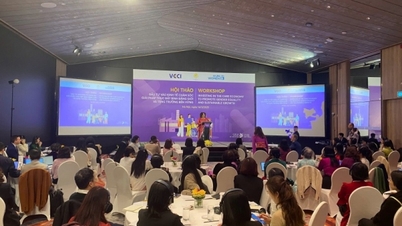


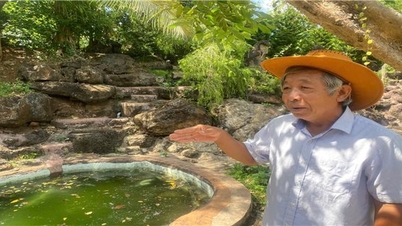






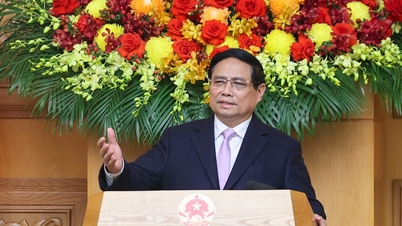
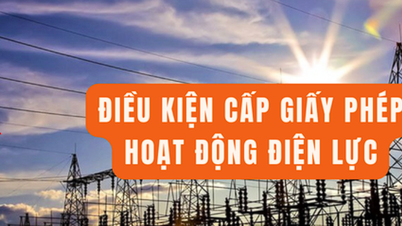
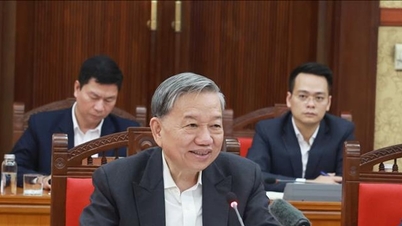

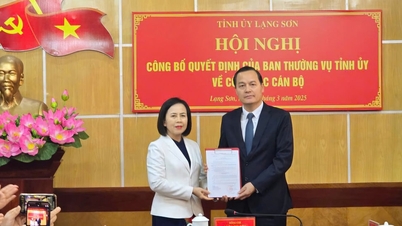



























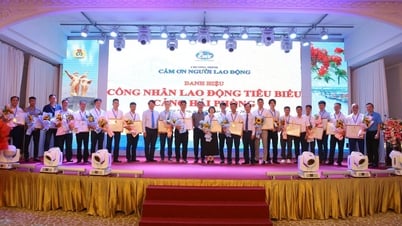









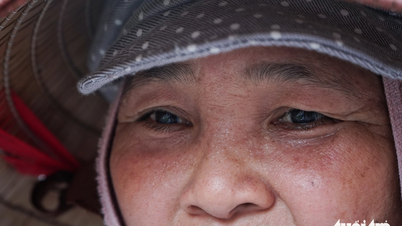


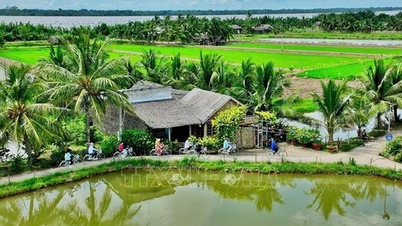


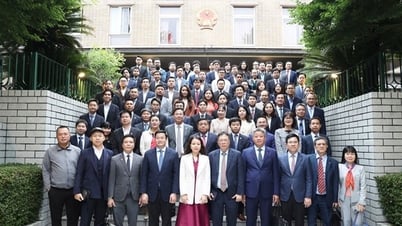






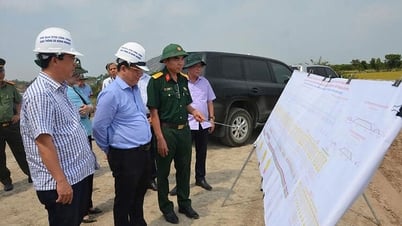


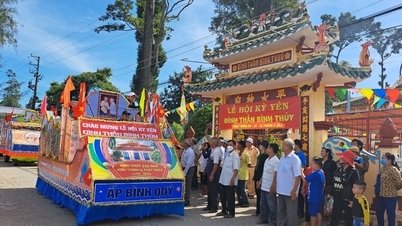















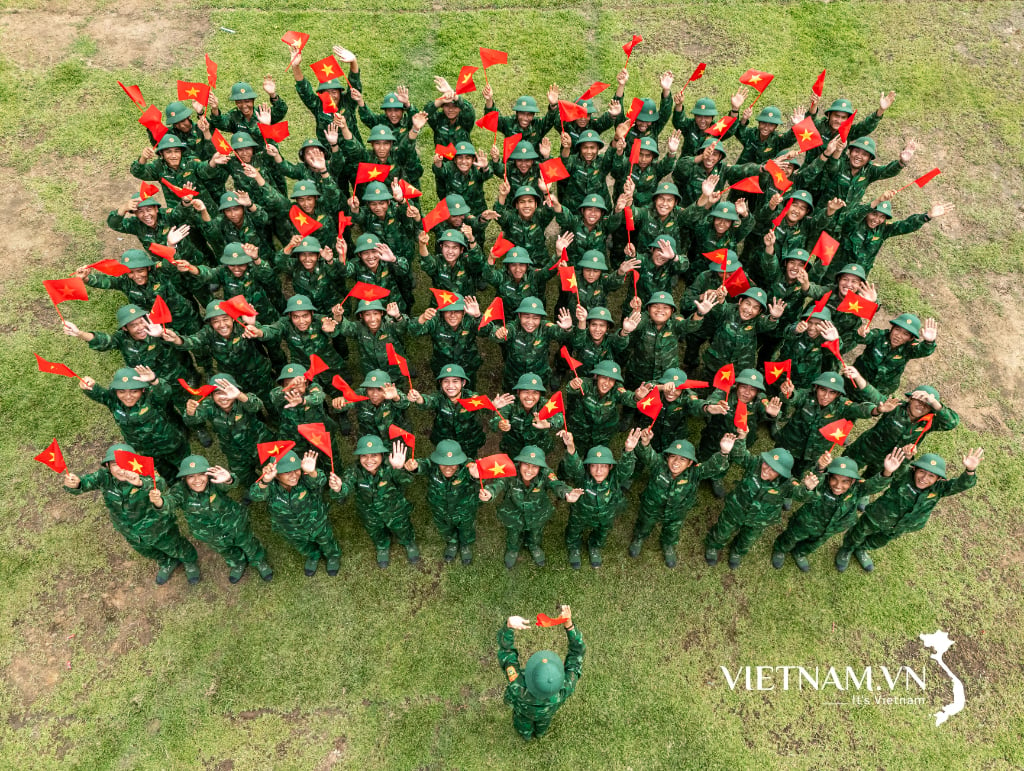
Comment (0)